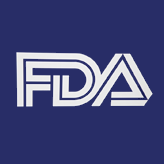FDA Approves Avastin for Advanced Cervical Cancer
The US Food and Drug Administration has approved bevacizumab (Avastin) for the treatment of patients with recurrent or metastatic cervical cancer.
The FDA has approved Avastin for cervical cancer.

The US Food and Drug Administration has approved bevacizumab (Avastin) for the treatment of patients with recurrent or metastatic cervical cancer. The drug is to be used in combination with paclitaxel and either cisplatin or topotecan.
“Avastin is the first drug approved for patients with late-stage cervical cancer since the 2006 approval of topotecan with cisplatin,” said Richard Pazdur, MD, director of the Office of Hematology and Oncology Products in the FDA’s Center for Drug Evaluation and Research, in a press release. “It is also the first biologic agent approved for patients with late-stage cervical cancer and was approved in less than 4 months under the FDA’s priority review program, demonstrating the agency’s commitment to making promising therapies available to patients faster.”
It is estimated that 12,360 women in the United States will be diagnosed with cervical cancer in 2014, and 4,020 women will die from the disease, according to the National Cancer Institute.
The trial that led to the approval was an international four-arm trial that included 452 patients who were randomly assigned to receive either chemotherapy plus bevacizumab (n = 227) or chemotherapy alone (n = 225). The chemotherapy used in the trial was paclitaxel plus either cisplatin or topotecan.
Overall survival, the primary endpoint of the trial, was 16.8 months (95% confidence interval [CI]; 14.1–19) in patients who received chemotherapy plus bevacizumab, compared with 12.9 months (95% CI; 10.9–15) in those who received chemotherapy alone.
No significant advantage was seen between patients who received cisplatin or topotecan. These results suggest that paclitaxel/topotecan plus bevacizumab is an appropriate option for patients who are ineligible for platinum therapy.
The most common side effects in patients treated with bevacizumab were hypertension, hyperglycemia, hypomagnesemia, fatigue, headache, decreased appetite and weight, and urinary tract infections. Perforations of the gastrointestinal tract (reported in 3.2%) and gastrointestinalâvaginal fistulae (reported in 8.2%) were also observed in patients treated with bevacizumab.
Other grade 3 or greater adverse events included hemorrhage, hypertension, complications with wounds healing, venous thromboembolic events, and proteinuria.